Living In Singapore: Pros & Cons You Should Know
Singapore is often described as a city that works, and it totally deserves its reputation. This small island nation in Southeast Asia has built one...
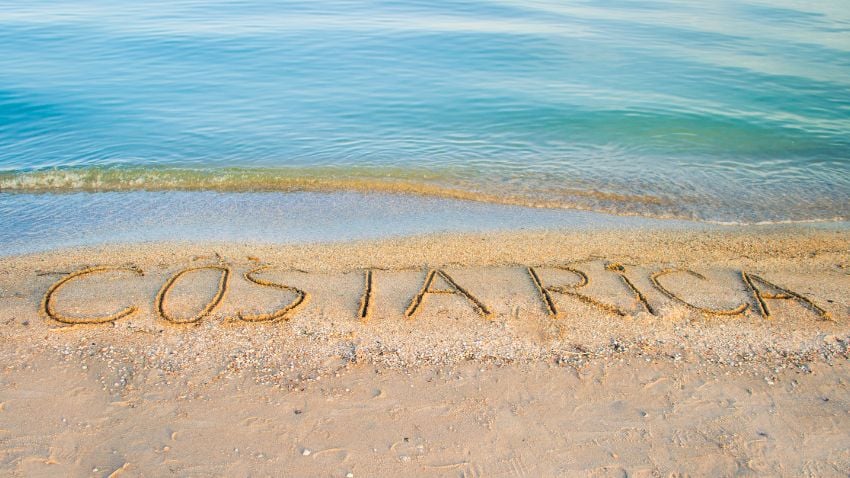
7 min read
Costa Rica has it all: beautiful woods, towering mountains, stunning beaches, flowing waterfalls, and attractive mountain villages. This Central American nation is located between Nicaragua to the north and Panama to the south; it is a region of beauty and wealth, with diverse wildlife. Costa Ricans are kind and polite people who welcome foreigners.
Agree with it or not, it's important to understand that the country's progressive social and environmental policies may be seen in its goals. Costa Rica's breathtaking landscapes, from lush rainforests to pristine beaches, will leave you in awe. Prepare to be surrounded by natural beauty and stunning vistas. Education and healthcare are wholly provided for everybody. Costa Rica is an eco-stewardship model, with more than 25% of its area preserved from development, enabling it to maintain its remarkable biodiversity for future generations. This is especially noticeable in Corcovado National Park. Furthermore, their culture and traditions demonstrate their commitment to democracy, freedom, and equality. You will enjoy shopping for unique souvenirs and local handicrafts in bustling markets and boutique stores.
Costa Rica's climate varies depending on the region. Coastal areas enjoy tropical weather year-round, while the central highlands offer cooler temperatures. Research the climate of your chosen destination to match your preferences. The country stays delightfully warm and sunny all year. The yearly average temperature on the coast ranges from 70°F (25°C) to 81°F (27°C), with the weather slightly milder in the plateau region. Because the nation is close to the equator, temperature variance is minimal. The year-round consistent weather pattern is one of the main reasons expats consider living in Costa Rica. The rainy season runs from May to November, and you can expect sufficient amounts of it. The Pacific coast and the country's northwest receive less rain.
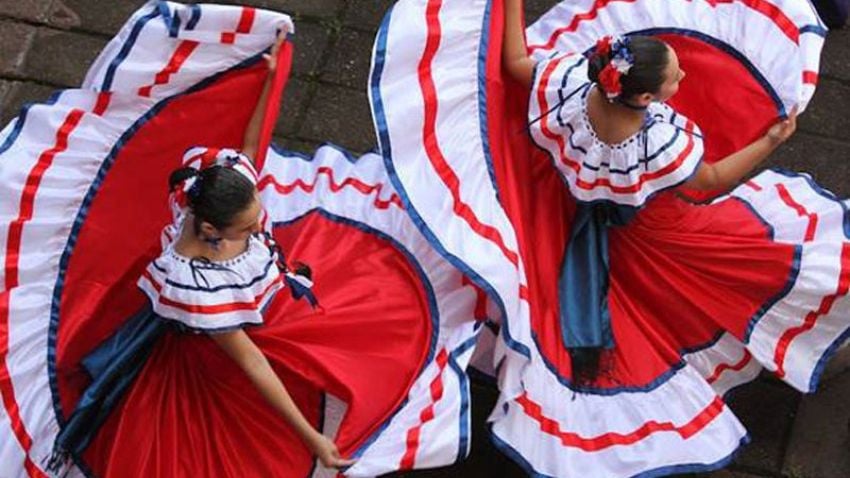
Costa Rica Traditional Dance
Costa Rica is home to a diverse population, both local and expat. This melting pot of cultures creates a welcoming and inclusive atmosphere. Learning about a country's customs is an excellent way to immerse yourself in a country's culture. Costa Ricans are cheerful, bright, laid-back, and kind. The indigenous influence coexists with Spanish influence in the local culture. People enjoy spending time with friends and relatives. Costa Rican life has a rhythm that is in perfect unison with the natural environment. Once you've experienced the laid-back atmosphere, you'll probably never want to return to the fast-paced world.
Related content: What Is Life Like In Panama?
Costa Rica is a diverse, blending culture. It has indigenous roots, Spanish colonial influence, and a spicy splash of other immigrant cultures like Jamaican and Chinese. The official language is Spanish. However, there are pockets of BriBri, Mekatelyu, as found along the Caribbean coast in the Limon province, and English. Limonese Creole, which sounds similar to Jamaican English, is spoken along the Caribbean coast. A patois dialect is also spoken, a blend of Spanish, French, and English. Indigenous languages continue to be spoken in rural regions. Most urban dwellers understand and can converse in broken English. However, because you're planning a trip to Costa Rica, you may want to brush up on your Spanish. But don't worry, Costa Rican Spanish is simple to learn, and most Costa Ricans speak slowly and without a distinct accent.
Costa Ricans are very proud of their ideals. They believe in education and healthcare and make it accessible to their citizens for free. They take pride in their long history as a democracy. They are the region's oldest and most stable democracy. They are also proud of their global leadership in developing long-term environmental and conservation strategies. Locals go out of their way to let tourists appreciate the natural beauty of their land and fauna. While embracing the "pura vida" lifestyle, you'll find modern amenities, including well-equipped hotels, healthcare facilities, and reliable public services. Most expat communities are conveniently located near international airports, making travel to and from Costa Rica hassle-free and you can join expat support groups to connect with fellow expats. These communities often provide valuable information, advice, and a sense of togetherness.
Costa Rica's national food is Gallo Pinto, a black beans and rice dish with onions and cilantro. This dish is typically served for breakfast with tortillas, sour cream, and scrambled or fried eggs. Casado is a classic lunch dish. Casado consists of rice, red or black beans, beef, chicken, fish, and vegetables or salad. Furthermore, you must taste tamales, often served during Christmas, and Tres Leches. Tres Leches is a soft, delicious pastel containing three different dairy ingredients. Costa Rica is also well-known for its banana and coffee farms. You may visit a coffee plantation on one of the numerous trips available across the Central Valley.
Costa Rica's official religion is Catholicism, which is taught in schools. Costa Rica is the only country on the American continent that has made Catholicism its official religion. As a result, religion is an essential aspect of Costa Rican society. The language, festivals, and customs all reflect the significance of religion. Costa Ricans are fervent Catholics, and religious festivals are significant to them. They have a standard Christmas custom where each community arranges for youngsters to re-enact Joseph and Mary, seeking a place to stay throughout the week before Christmas. If you visit Costa Rica around this time of year, you must enjoy the traditional Christmas food of handmade tamales and attend a traditional bullfight.
Related content: The Basics Of How To Get A Second Passport Or A Second Residency.

Costa Rica Nightlife
Soccer is the most popular sport in Costa Rica, as it is in the rest of Central America. Soccer teams exist at both the municipal and provincial levels. You will always have a place to play soccer in Costa Rica. There isn't a community in Costa Rica that doesn't have at least one soccer field. Soccer is the most important sport in this nation. A soccer field is often positioned near other essential community organizations, such as churches and food shops. It is more than a sport; it expresses Costan Rican pride and identity.
Costa Rica has a thriving and diversified nightlife. While residing in this nation, you may visit bars, pubs, dance clubs, comedy performances, live music, and karaoke bars. The capital, San José, provides the most alternatives for evening entertainment. Some sports pubs in and around San José stay open late and display American football, baseball, and soccer. Open live concerts, stand-up comedy performances, symphony sessions, ballets, and other cultural events are held in the local theatres and the National Stadium. Jaco is well known for its beachfront nightlife and is the most extraordinary party town in the nation. Hundreds of pubs with live music, dance clubs, and casinos are on both sides of the street. Other locations, like the southern Caribbean coast, feature a similar nightlife and distinct character. You'll always have various experiences to select from, no matter where you stay.
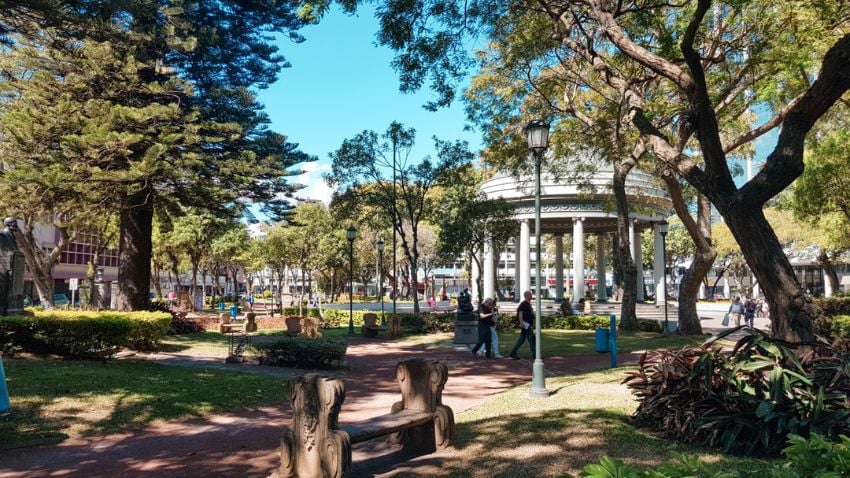
Park at San Jose, Costa Rica
Costa Ricans, known as "Ticos" and "Ticas," are renowned for their warmth and hospitality. You'll find it easy to make friends and feel at home. Whether you crave adventure or relaxation, Costa Rica has it all. From surfing on the Pacific coast to hiking in the hills and exploring the dense rainforests, there's something for everyone.
Costa Rica comprises seven provinces. The most populous region is the Central Valley, which includes the capital city of San José. Thanks to its connection and dynamic lifestyle, this area draws many expats. It also boasts many excellent foreign schools. While some expats love San José, many others choose surrounding small towns such as Santa Ana, Escazu, or San Ramón. Other cities in this area with close-knit expat communities include Atenas, Grecia, and Cartago.
Expats may benefit from the southern zone encompassing the Panamanian border. This is the place to live if you want to be surrounded by nature. The neighbourhood is less developed and less expensive. Lake Arenal and the Gold Coast are also attractive areas for expat communities.
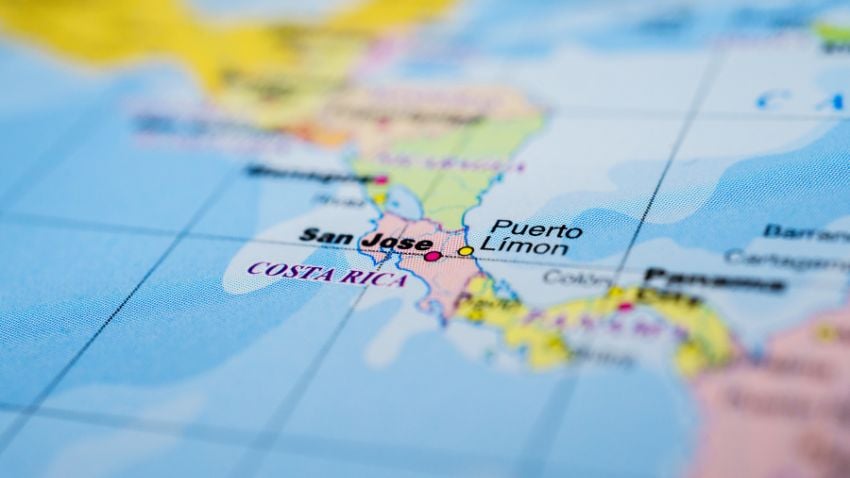
Costa Rica On Map
The cost of living in Costa Rica varies depending on where you live. San Jose, for example, is more expensive than smaller, more rural communities. Imported goods are over 50% more expensive than local produce. Going to local shops is an ordinary habit e to save money. For example, you can purchase fruits and vegetables at farmer's markets. Nothing beats fresh fruit from a local farm. As an expat, you'll find a strong sense of community and support among fellow expatriates. This sense of belonging can be invaluable as you adapt to your new life.
While the cost of living in Costa Rica has grown in recent years, housing, medical expenditures, and transportation remain pretty reasonable. A $2,000 USD monthly salary will provide a high level of lifestyle s5e government-run programs cover all Costa Rican citizens' and permanent residents' medical treatments and prescription medications. You pay a monthly tax of 7% to 11% of your salary under the CAJA system (Caja Costarricense de Seguro Social). This tax also covers dependents and spouses as well.
Costa Rica also has world-class private hospitals. Many expats choose a combination of public and private medical care, with private medical treatment paid for by insurance. We propose getting a few quotes from International Insurance to obtain the finest private healthcare insurance coverage. They work with various healthcare providers and can suggest the ideal ones for your specific situation.
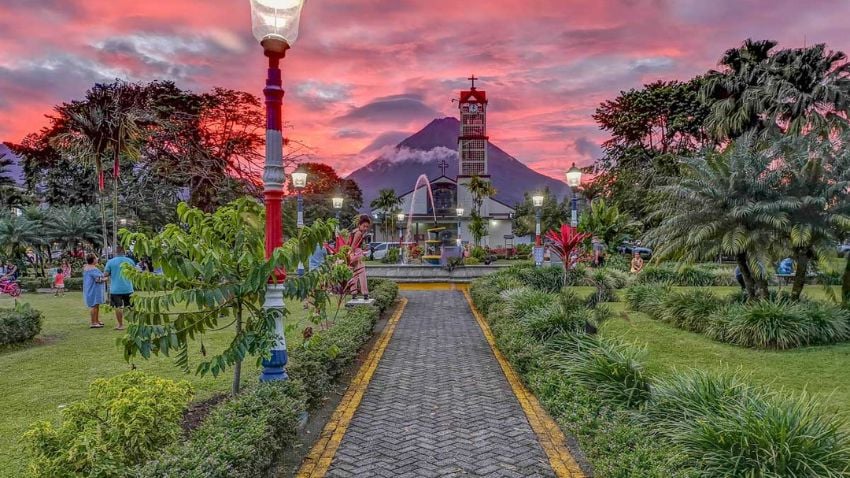
Enjoying the afternoon in San Jose, Costa Rica
The 2021 Global Peace Index puts Costa Rica 39th out of 163 nations. It is Central America's and the Caribbean region's most tranquil nation. A lengthy era of political and economic stability has contributed to the country's peace and containment. In 1949, the government notably dissolved its military. This idea has had a favourable influence on society as a whole.
While the general crime rate is low, petty theft remains a problem for expats living in Costa Rica. Burglaries, wallet snatching, muggings, and pickpocketing are everyday crimes in densely populated locations. You should be cautious in busy places and tourist regions. Compared to other nations in the area, more violent crimes such as murder, sexual assault, and armed robbery are uncommon. Although the media often covers these incidents, they are usually between gangs and are seldom directed against expats.

Driving four wheelers in Costa Rrica
Most expats in Costa Rica will tell you that the benefits of living there outweigh the drawbacks. However, before relocating here, you should consider the pros and cons. Obtaining a residency or working visa can be easy, and if you come from the United States, you will encounter a drastically different society. Be prepared to cope with a lot of traffic if you relocate to San Jose or the nearby suburbs. Remember, you're going to a tropical country, so be prepared to meet many differences and maybe even some culture shock.
The Costa Rican culture and enjoying the country are what most people like about living in Costa Rica. There is also good and reasonably priced healthcare, and domestic assistance is generally provided. Costa Rica has so many magnificent sights that you will never be bored. A wonderful piece of advice would be to come and rent for a few months before choosing to relocate to see how you like it.
Related article: Costa Rica Rentista Visa
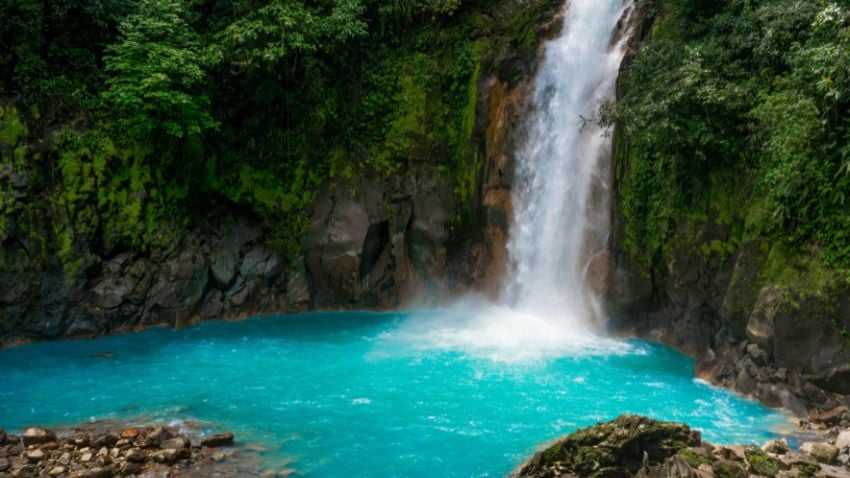
Rio Celeste Waterfall, Costa Rica
Costa Rica is often intriguing as a place to live. The standard of living can be high depending on where you live, and your money will go a long way depending on the area and lifestyle. Though Costa Rica is a tropical paradise, choosing to live there full-time is not the same as visiting there as a tourist. Like every nation, there are parts of culture and society that most tourists are unaware of. There are many residents who are expats who came to the nation as tourists and fell in love with it. So you could be next!
If you want the best intel from the expat world, including profitable offshore opportunities, little-known tax-saving strategies, and hard-won insights on immigration, passports, and Plan-B residencies, all delivered to your inbox every single week, then join our daily correspondence, EMS Pulse®. Currently enjoyed by over 84,000 expats and expat-hopefuls worldwide. Fill in the form below to join our newsletter free:

Written by Mikkel Thorup
Mikkel Thorup is the world’s most sought-after expat consultant. He focuses on helping high-net-worth private clients to legally mitigate tax liabilities, obtain a second residency and citizenship, and assemble a portfolio of foreign investments including international real estate, timber plantations, agricultural land and other hard-money tangible assets. Mikkel is the Founder and CEO at Expat Money®, a private consulting firm started in 2017. He hosts the popular weekly podcast, the Expat Money Show, and wrote the definitive #1-Best Selling book Expat Secrets - How To Pay Zero Taxes, Live Overseas And Make Giant Piles Of Money, and his second book: Expats Guide On Moving To Mexico.
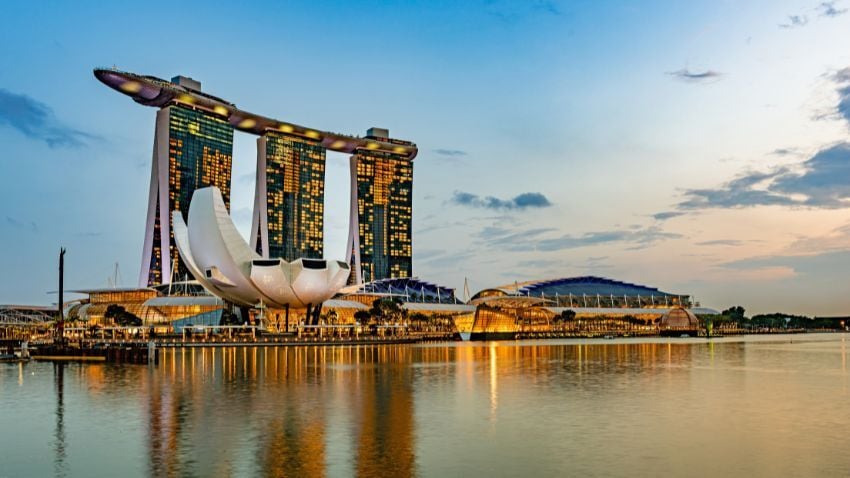
Singapore is often described as a city that works, and it totally deserves its reputation. This small island nation in Southeast Asia has built one...

Panama’s geographic size is modest, but its global relevance is not. The country connects two oceans and two continents, operates on a dollarized...

Honduras’ newly elected president, Nasry Asfura of the conservative National Party, was sworn in on January 27, 2026. The election, held on November...